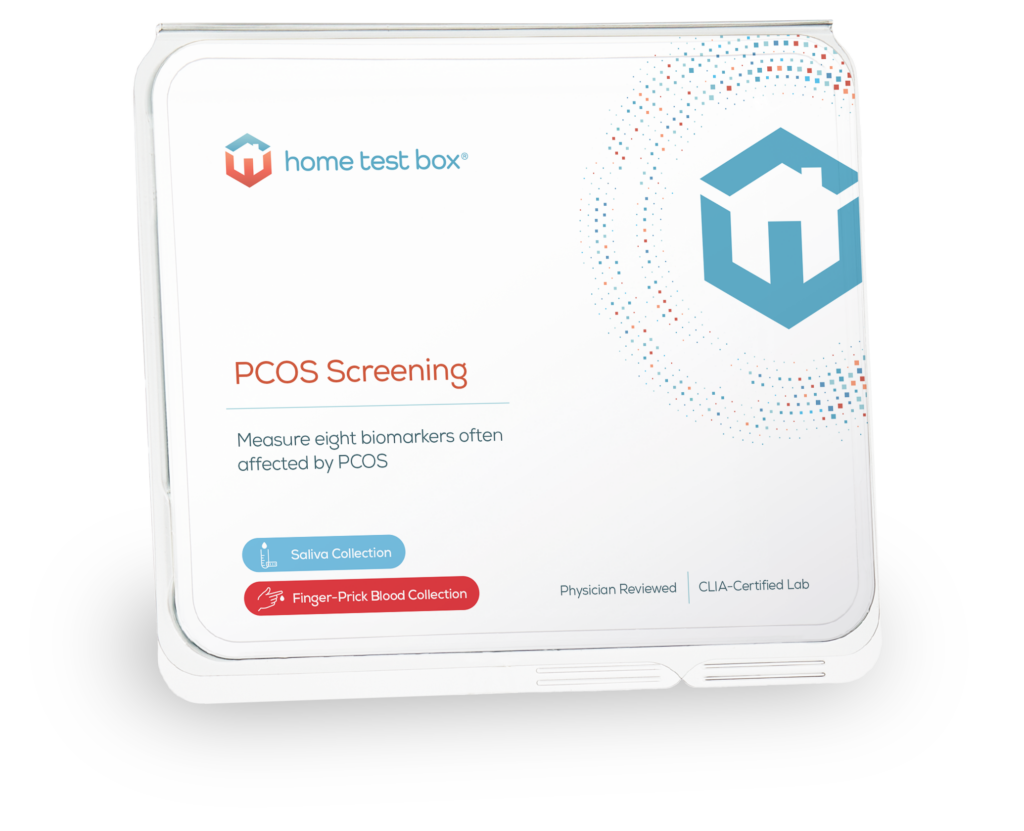If you have PCOS (or suspect you have it), you’re probably already familiar with the common symptoms.
When you research the symptoms of PCOS, you will likely see a list that includes irregular periods, weight gain, and physical symptoms like acne and excess facial and body hair (hirsutism).
PCOS isn’t something to take lightly. Untreated PCOS can have serious outcomes. It can increase the risk of infertility, metabolic syndrome, type 2 diabetes, and more.
Today, we will share some common symptoms you probably didn’t know were related to PCOS.
1. Mood Disorders
PCOS is often associated with physical symptoms like weight gain, acne. But did you know it’s also related to mental health conditions?
Here are a few mood disorders linked to PCOS.
Depression
Women with PCOS are more likely to experience depression. The exact reasons aren’t entirely understood, but potential factors include:
- Physical symptoms of PCOS (like acne and hirsutism) can affect self-esteem and body image
- The stress of dealing with a chronic illness
- Hormonal imbalances associated with the condition
- Insulin resistance (common in PCOS) can affect serotonin levels, potentially leading to depression.
Anxiety
Like depression, anxiety disorders are more common in women with PCOS. The symptoms of PCOS can be stressful. They can trigger worry and fear about the future, particularly regarding fertility.
Bipolar disorder
Some studies suggest a higher prevalence of bipolar disorder in women with PCOS. More research is needed to understand this relationship fully.
One theory is that hormonal imbalances in PCOS might impact neurotransmitter levels. This might cause mood swings and possibly contribute to bipolar disorder.
PCOS Symptoms Vary
Not every woman with PCOS will experience mood disorders. And mood disorders can occur in women without PCOS.
Studies linking PCOS to mood disorders don’t imply a cause-and-effect relationship. Instead, these conditions often coexist.
Discussing your symptoms with your healthcare provider is essential if you’re struggling with mood disorders. They can help you find the appropriate treatment and manage your symptoms.
2. Sleep Disturbances
PCOS can have significant effects on sleep, further exacerbating symptoms. Here are some ways PCOS and sleep are connected.
Lack of sleep can disrupt various hormones, including cortisol, ghrelin, leptin, and insulin. These hormones can influence weight, appetite, and glucose metabolism.
Hormonal imbalance and insulin resistance are key aspects of PCOS. Inadequate sleep could worsen these conditions.
Sleep apnea
Some studies suggest that sleep apnea is more common in women with PCOS. Sleep apnea is a disorder characterized by pauses in breathing or periods of shallow breathing during sleep.
The connection may be due to factors like obesity and insulin resistance. Both of these are common in PCOS and can contribute to sleep apnea.
Sleep apnea can lead to daytime sleepiness, fatigue, and increased heart disease risk, further compounding PCOS-related health issues.
Insomnia
Many women with PCOS report difficulty falling asleep or staying asleep (insomnia). Sleep difficulties could be due to the discomfort of PCOS-related symptoms like pelvic pain. It may also result from the psychological stress and anxiety related to living with the condition.
Insufficient or poor-quality sleep can have a detrimental effect on mental and physical health. It can also worsen PCOS symptoms.
Restless legs syndrome (RLS)
Some evidence suggests that restless legs syndrome (RLS) is more prevalent in women with PCOS. RLS involves an uncontrollable urge to move one’s legs, usually in the evenings or at night.
Depression and anxiety
As mentioned earlier, PCOS is linked to higher rates of mood disorders. These conditions can, in turn, affect sleep. Insomnia and other sleep disturbances are common symptoms of both depression and anxiety.
Given the strong links between sleep disorders and PCOS, many healthcare providers screen for sleep disorders when treating women with PCOS. Addressing sleep disturbances may not only improve sleep quality. But it could also help improve the metabolic and reproductive aspects of PCOS.
3. Skin Irregularities
As we’ve mentioned, acne is a common PCOS symptom. You might be less aware of some of the other related skin concerns.
Skin tags
Skin tags are small, benign growths often occurring in skin folds or creases, such as the neck, armpits, or groin. Women with PCOS may be more prone to developing them.
Dark patches
Some women with PCOS may develop patches of darkened skin. This condition is called acanthosis nigricans. It typically occurs on the neck, underarms, groin, or inner thighs.
4. Pelvic Pain
Some women with PCOS report having pelvic pain. While it’s not a primary symptom of the condition, pelvic pain can occur from the presence of ovarian cysts.
PCOS is also associated with other conditions that can cause pelvic pain—for example, endometriosis and fibroids.
In some cases, the pain could also be related to the menstrual cycle or ovulation, as irregular cycles and ovulation are typical in PCOS.
5. Headaches
Frequent headaches or migraines can be a less-known symptom of PCOS. They may be from hormonal imbalances and other related factors.
There’s no direct relationship between PCOS and headaches. However, hormonal fluctuations characteristic of PCOS can trigger migraines in susceptible individuals.
Conditions often associated with PCOS, like obesity and insulin resistance, can also increase the likelihood of headaches. The stress and anxiety from dealing with a chronic condition like PCOS can also contribute to headaches.
6. Digestive Issues
PCOS has been linked to gastrointestinal symptoms like bloating, abdominal pain, and irritable bowel syndrome (IBS). These symptoms may be related to insulin resistance, inflammation, or hormonal fluctuations.
While PCOS doesn’t directly cause digestive problems, women with PCOS are more likely to have IBS, which causes abdominal pain, bloating, and changes in bowel habits.
Many women with PCOS follow a specific diet (like a low-glycemic index diet) to manage their symptoms, and changes in diet can affect digestion.
Metformin, a medication often used to treat PCOS, can cause gastrointestinal side effects like nausea, diarrhea, and abdominal discomfort.
7. Hair Loss
High levels of androgens, or male hormones, characterize PCOS. This can cause hirsutism, or unwanted hair growth, in areas like the face, chest, and back.
However, these same hormones can cause hair thinning or hair loss on the scalp (androgenic alopecia).
This is because androgens shorten the hair growth cycle, leading to the growth of shorter, thinner strands of hair. It’s important to note that not all women with PCOS will experience hair loss, as it can depend on individual sensitivity to androgens.
Screen for PCOS
This PCOS screening kit makes it easier than ever to measure 8 hormones & other biomarkers commonly affected by PCOS.
-
Simple sample collection
-
Easy-to-understand results in 3-5 days
-
No doctor or lab visit required
At-home options, like our at-home PCOS screening kit, make it easier than ever to check your hormones. In addition to testing in the comfort of your home, the kits are easy to use, confidential, and reliable.
PCOS is Complicated
Please remember that while these symptoms can be associated with PCOS, they can also be caused by other medical conditions. It’s important to discuss any new, worsening, or concerning symptoms with a healthcare provider. They can give you an accurate diagnosis or appropriate treatment.






